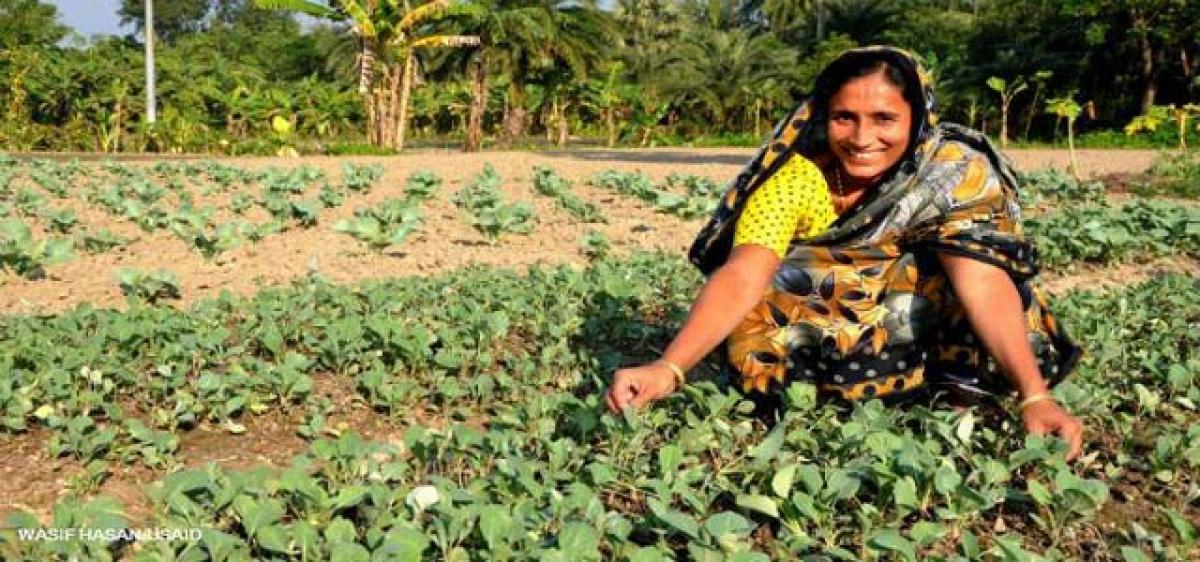Women uplift key to sustainable growth

Although from three different countries, Mahima Shrestha, Sadia Farhat and Rukmini Devi have something in common – they are fighting for their own empowerment in the Hindu Kush Himalaya (HKH) countries of Nepal, Bangladesh and India. They are among millions of women in the HKH region whose empowerment will help achieve sustainable development, experts say.
Patna : Although from three different countries, Mahima Shrestha, Sadia Farhat and Rukmini Devi have something in common – they are fighting for their own empowerment in the Hindu Kush Himalaya (HKH) countries of Nepal, Bangladesh and India. They are among millions of women in the HKH region whose empowerment will help achieve sustainable development, experts say.
Shrestha has been fighting for land rights in her village near Kathmandu; Sadia has been fighting to send her daughters to school in a village in Bangladesh; Rukmini has been fighting for an equal wage as a farm labourer in a village in Bihar bordering Nepal. Their fight is not only for gender equality; it also reflects their hunger for empowerment as a means of ensuring sustainable development.
According to a new research paper, based on a field study by two experts of the Kathmandu-based International Centre for Integrated Mountain Development (ICIMOD), sustainable development will not be possible without girls and women fully realising their rights in all spheres of life.
Kamala Gurung and Golam Rasul, two experts, said that in the HKH, in particular, universally discriminatory barriers include laws, traditions and issues of access which bar women from owning and inheriting land in many societies. In the Chittagong Hill Tracts (CHT) of Bangladesh, for instance, one-fifth of the female population cannot inherit property, and virtually none of the Mro and Khyang communities can.
In neighbouring Nepal, the government is trying to encourage land ownership for women through an incentive in the form of tax reductions for land registered in the name of a woman. However, in spite of this policy, the pace at which the share of land owned by women is increasing in Nepal is very slow. Government data based on land ownership certificates from 2011 show that women have limited land ownership, ranging from 8 to 10 percent.
This averages to less than 0.1 hectares of land per woman per holding. What must be taken into account here is that the absence of claims to property can not only muffle the voices of women but also make it harder for them to enter and flourish in commercial, economic and even certain social activities.
According to data from the Federation of Community Forestry Users Nepal (FECOFUN), one of the most successful development initiatives in the country, women's participation as decision-makers on the executive committees of community forest user groups (CFUGs), averaged only 25 per cent in 2012.
The numbers clearly indicate that the road to achieving women's empowerment and gender equality in a manner that prioritises the well-being of both men and women remains a long and challenging one. Achieving greater equality between men and women will require a transformation in power relations between them and the breaking of structural barriers impeding progress in this area.
Sustainable Development Goal 5, which seeks gender equality and empowerment for all women, offers an opportunity to embed gender equality into transformative approaches to sustainable development. "Prioritising investment in the empowerment of girls and women in the HKH is not only a direct path towards gender equality, poverty reduction and inclusive economic growth, it also ensures that nobody is left behind," the experts said.
An enabling environmental and transformative policy is crucial to ensuring sustainable development and the social and economic empowerment of women. This would also help accelerate the implementation of existing commitments in the 1995 Beijing Declaration and Platform for Action (for women's rights) and support conscious efforts being made to meet SDG 5, they added.
By Imran Khan

